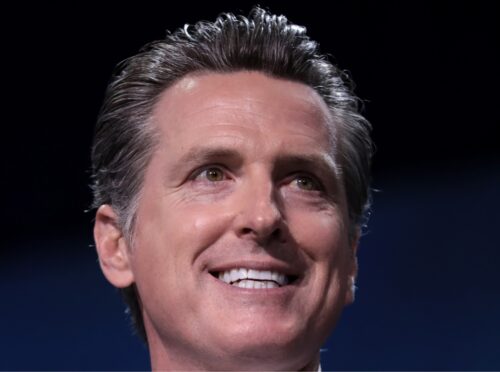Australia and New Zealand hint at stronger economic ties with China
China is the largest trading partner to Australia and New Zealand. And that’s clearly top of mind for the leaders of both countries, despite pressure from their Western security allies to get tough on Beijing.

Australia and New Zealand have signaled warmer ties with China, their largest and most important trading partner, in a joint press conference and conversation between Prime Minister Anthony Albanese and his New Zealand counterpart Chris Hipkins on Tuesday.
“Our position on China is clear, that we’ll cooperate where we can, we’ll disagree where we must, and we’ll engage in our national interest,” Albanese said. “The trade to China is more than the trade figures value than the next three highest trading partners combined. So it’s in Australia’s national interest to have good economic relations and to trade with China, and it’s also in China’s interest to receive the goods that we have.”
“China is an incredibly important partner for New Zealand,” Hipkins said. “That doesn’t mean there aren’t going to be areas where we disagree from time to time, and we’ll continue to voice our disagreements with China when that happens.”
“For both Australia and New Zealand, a variety of challenges have appeared in the relationship over the last few years, from human rights concerns to questions around security and Chinese intentions in the Pacific,” Jason Young, director of the New Zealand Contemporary China Research Centre, told The China Project. “These are intensified by strategic competition between China and the United States. This makes diplomacy and face to face meetings with Chinese officials even more important as a vehicle to facilitate cooperation where possible and to raise concerns and try to resolve issues where required.”
The end of a three-year trade spat with Australia
The meeting comes one day after China said it was willing to “restart” trade talks with Australia to get economic ties back on track (readout from Beijing, Canberra), after the countries’ commerce ministers spoke for the first time since 2019.
Although the meeting did not produce a breakthrough, it did end a freeze in dialogue between the two nations and mark a step toward the “stabilization” of ties. In a more than 90-minute phone call, Australian Commerce Minister Don Farrell urged for the “restoration of unimpeded trade,” while his Chinese counterpart Wáng Wéntāo 王文涛 said that China was “closely following Australia’s tightened security review of Chinese companies’ investment and operations” in the country.
“The Albanese government has held firm to a steady line on China relations, emphasizing diplomatic tone and conduct and cleaving to consistency, clarity and calmness in rhetoric,” Elena Collinson, head of analysis at the Australia-China Relations Institute, University of Technology Sydney, told The China Project. “But while Labor has elevated diplomacy in its foreign policy, there has been no substantive change in the policy settings established by its predecessor.”
“It also remains realistic about the limits of improvement in the short to medium term. Australian ministers have emphasized the ‘stabilization’ of the relationship, differing from the use of ‘reset’ by Chinese officials,” she added.
Ties between China and Australia have been on the outs since 2018, when Canberra banned Chinese telecom giant Huawei from building its 5G network in the country. Things deteriorated further in 2020, when then-Prime Minister Scott Morrison angered Beijing over his calls for an investigation into the origins of COVID in Wuhan.
In retaliation, Beijing rolled out tariffs or unofficial bans on a wide range of Australian exports, including highly lucrative goods like wine, barley, lobsters, and coal. Both countries have launched separate disputes at the World Trade Organization (WTO), though China has continued to insist that its trade restrictions are in line with international rules.
China remained Australia’s largest trading partner, however, with two-way trade growing 6.3% between 2020 and 2021 to A$$267 billion ($185 billion). Meanwhile, Beijing relaxed some unofficial trade restrictions on key Australian imports like coal last month, and reports have suggested that lobsters may be next.
“Defence Minister Richard Marles said in November 2022 that ‘the idea that Australia has to choose between diplomacy and defense — or, as some critics would have it, between cooperation and confrontation — is a furphy,’” Collinson told The China Project, using Australian slang for an improbable or false story. “The new government has been successful in walking this line so far, but this delicate balancing act will likely prove even trickier to navigate in 2023 as existing issues sharpen and emergent issues present themselves.”
Farrell will also visit Beijing “in the near future,” following a trip by Australian foreign affairs minister, Penny Wong, in December 2022. President Xí Jìnpíng 习近平 and Australian Prime Minister Anthony Albanese also met at the G20 summit in November 2022, the first face-to-face meeting between two heads of state in six years.
Cautious New Zealand
New Zealand, on the other hand, has long taken a more conciliatory approach to China. But Wellington’s less hawkish stance has often come under fire among its Western allies, particularly among fellow members of the Five Eyes alliance, which includes Australia, Canada, the U.K. and the U.S.
Similar to Australia, China is by far New Zealand’s largest trading partner. Wellington placed itself into Beijing’s good graces after signing a free-trade agreement in 2008, which was upgraded in 2021. Since then, bilateral trade grew from less than NZ$4 billion ($2.5 billion) in 2008 to about $20 billion ($12.49 billion) in 2022, boosting New Zealand’s economy with exports of agricultural goods and foods to China.
But New Zealand has increasingly found itself wedged between its economic relationship with China and its security allegiances to allies like the United States. It has refused to join AUKUS — the security pact involving Australia, U.K., U.S. — over its longstanding nuclear-free policy. And New Zealand’s business owners have historically been reluctant to upset China, blunting some of Wellington’s criticisms of Beijing and fueling its principled position in foreign policy.
Earlier in January, Hipkins said that China was “incredibly important economically” and that a trip to the country was “high on his priority list,” signaling a change in policy from his predecessor, Jacinda Ardern, after she announced she would step down. Ardern was by no means a hawk, but in the last two years, she adopted a slightly more assertive posture than any of her predecessors over the past two decades.






